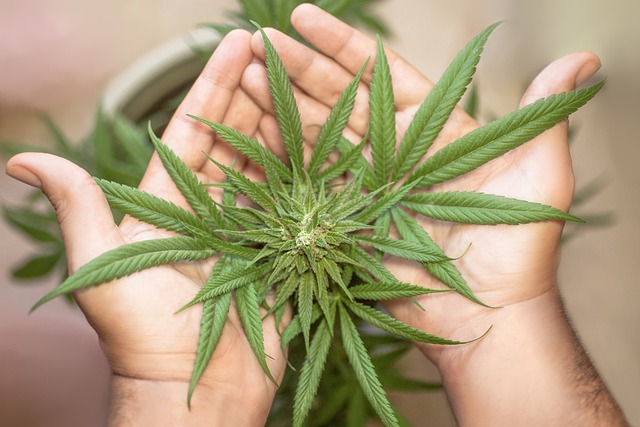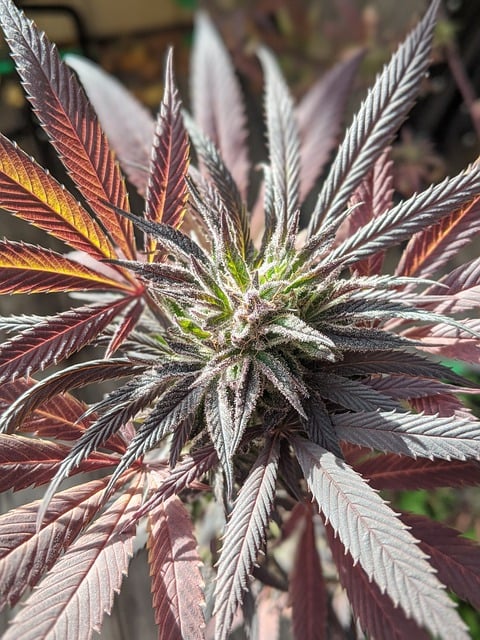Kentucky's legislative update has officially recognized THCA (Tetrahydrocannabinolic Acid) as a distinct, legal entity within its cannabis market. Unlike its psychoactive counterpart THC, THCA is found in raw cannabis and doesn't induce a 'high.' The new laws have clarified that THCA can be legally sold separately from THC, provided it contains no more than 0.3% THC as per federal regulations. This legal distinction allows consumers to benefit from THCA's potential health advantages, such as anti-inflammatory and neuroprotective effects, without the psychoactive effects. Kentucky's agricultural sector and academic institutions are actively researching THCA's benefits, which has made it a significant focus in the state's evolving approach to cannabis derivatives. The THCA legal status in Kentucky positions it as a key player in the health-focused hemp products market, reflecting a nuanced regulatory framework that differentiates between cannabinoids. This shift underscores Kentucky's commitment to exploring and regulating cannabis compounds for their therapeutic properties within a compliant legal environment.
Kentucky’s evolving approach towards hemp and its derivatives has brought a spotlight on THCA flower, a cannabinoid-rich plant with potential health benefits. This article delves into the burgeoning role of THCA flower within Kentucky’s legal framework, exploring its medicinal properties, cultivation practices, and the scientific rationale behind its use. As THCA becomes more prominent in Kentucky’s hemp industry, understanding its legality and distinction from other cannabinoids like THC is crucial for consumers and producers alike. Join us as we unravel the complexities of THCA flower benefits, all while staying within the bounds of Kentucky law.
- THCA Flower Benefits Unveiled: A Legal Perspective in Kentucky
- Understanding THCA: The Potential of Raw Cannabis in Kentucky's Legal Framework
- THCA vs. THC: What Sets the Raw Cannabinoid Apart?
THCA Flower Benefits Unveiled: A Legal Perspective in Kentucky

Kentucky’s legal landscape has undergone significant shifts, particularly with regards to cannabis derivatives. As of the latest legislative updates, THCA (Tetrahydrocannabinolic Acid), a non-psychoactive compound found in raw cannabis that converts into THC when heated, is legally distinct from its psychoactive counterpart. This distinction has opened up new avenues for consumers and producers within Kentucky’s regulated market. The benefits of THCA flower are being explored as an alternative to other cannabinoid products, with potential advantages that include a wide range of therapeutic properties without the psychoactive effects typically associated with THC.
Consumers in Kentucky interested in THCA flower can now partake in its potential wellness benefits legally. THCA is noted for its anti-inflammatory and neuroprotective qualities, which may offer relief from various conditions. The legal status of THCA in Kentucky allows for research and experimentation with its applications, setting the stage for a potentially robust industry centered around this cannabinoid. As such, the interest in THCA flower is growing, with many advocating for its inclusion in wellness routines due to its purported benefits, which include supporting the body’s natural balance without the ‘high’ associated with THC-rich products. This shift towards a more informed and regulated approach to cannabis derivatives is a testament to Kentucky’s evolving attitudes towards cannabis and its compounds.
Understanding THCA: The Potential of Raw Cannabis in Kentucky's Legal Framework

Understanding THCA, or tetrahydrocannabinolic acid, the raw and natural form of THC found in cannabis plants, is becoming increasingly relevant as Kentucky’s legal framework evolves to accommodate different cannabinoid products. THCA is non-psychoactive, which means it offers potential health benefits without the intoxicating effects associated with its decarboxylated form, THC. As of the latest legislative updates, THCA-rich products are legally permitted in Kentucky, provided they contain no more than 0.3% THC on a dry weight basis, aligning with the federal government’s guidelines under the 2018 Farm Bill. This legal distinction allows for the exploration and utilization of THCA’s properties within the state’s burgeoning hemp industry.
Kentucky’s farmers, researchers, and businesses are now exploring the myriad benefits of THCA, which include its potential anti-inflammatory, neuroprotective, and analgesic effects. The state’s academic institutions are conducting studies to further elucidate THCA’s therapeutic potential, while the Kentucky Department of Agriculture oversees the production and sale of hemp products within the state’s regulated marketplace. As awareness and research grow, the use of THCA flower, rich in this cannabinoid acid, is gaining traction as a health-focused alternative to other cannabis derivatives, all within the confines of Kentucky’s evolving legal landscape.
THCA vs. THC: What Sets the Raw Cannabinoid Apart?

Delta-9-tetrahydrocannabinolic acid (THCA) and delta-9-tetrahydrocannabinol (THC) are two naturally occurring forms of cannabinoids found in the cannabis plant. While THC is the compound most commonly associated with the psychoactive effects of cannabis, THCA exists in its non-psychoactive acid form within the raw cannabis flower. The legal landscape regarding cannabinoids varies by state in the U.S., with THCA being a point of interest in certain jurisdictions, such as Kentucky.
In Kentucky, where specific cannabinoids are regulated under state law, THCA exists in a legal gray area. This is because raw cannabis flowers containing THCA are not considered the same as processed forms of THC. The psychoactive effects of THC occur after it is decarboxylated—heated to convert THCA into THC. As such, consumers interested in the potential benefits of THCA can legally engage with raw cannabis flowers, which are rich in this non-psychoactive cannabinoid. Research suggests that THCA may offer a range of therapeutic properties, including anti-inflammatory and neuroprotective effects, without the mind-altering capabilities of its counterpart, THC. This distinction makes THCA an appealing subject for study and use within the bounds of legal compliance in states like Kentucky, where the legislative framework allows for such distinctions.
In Kentucky, the evolving legal landscape has paved the way for a deeper exploration of THCA flower benefits, offering a novel perspective within the state’s regulatory framework. This article has shed light on the potential of THCA, a cannabinoid that holds promise for various wellness applications and is legally accessible in Kentucky. Distinguishing THCA from its psychoactive counterpart THC, we’ve seen that this raw cannabinoid may offer distinct advantages without the intoxicating effects associated with THC. As Kentucky continues to navigate the complexities of cannabis legislation, the understanding and utilization of THCA could represent a significant advancement in natural well-being options. With ongoing research and legislative developments, the future of THCA in Kentucky appears both promising and pivotal in the realm of health and wellness.
